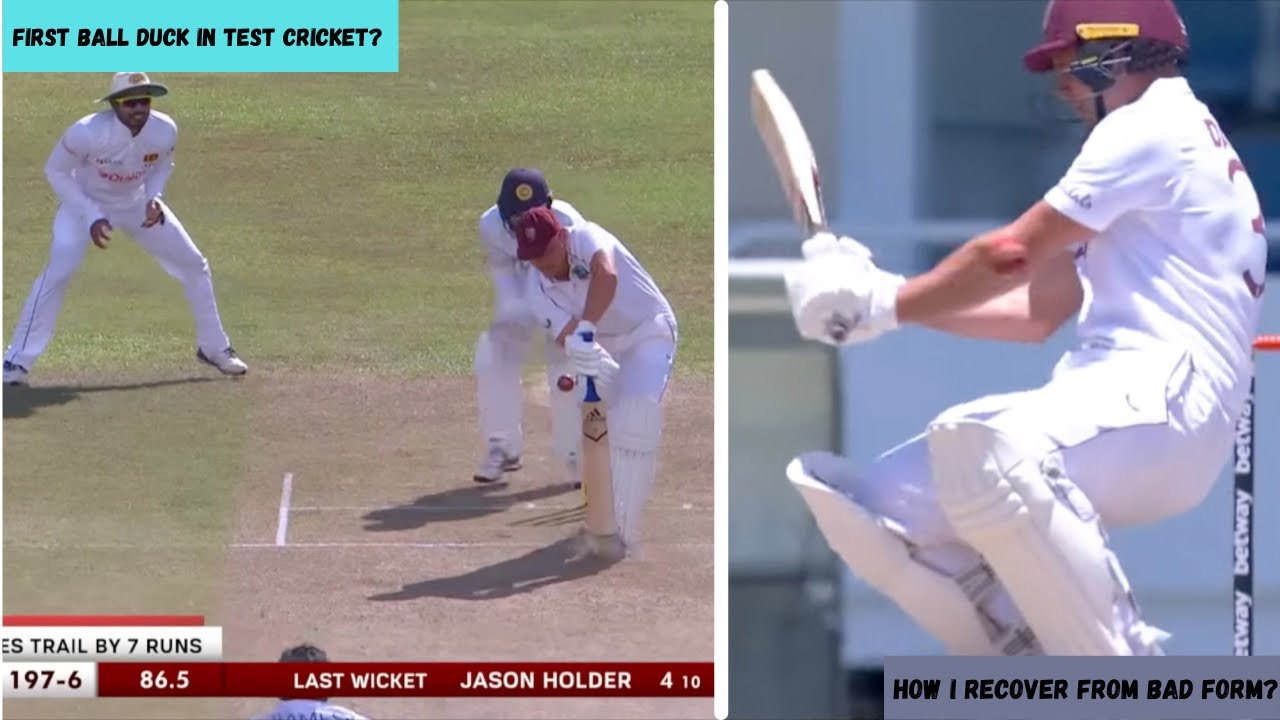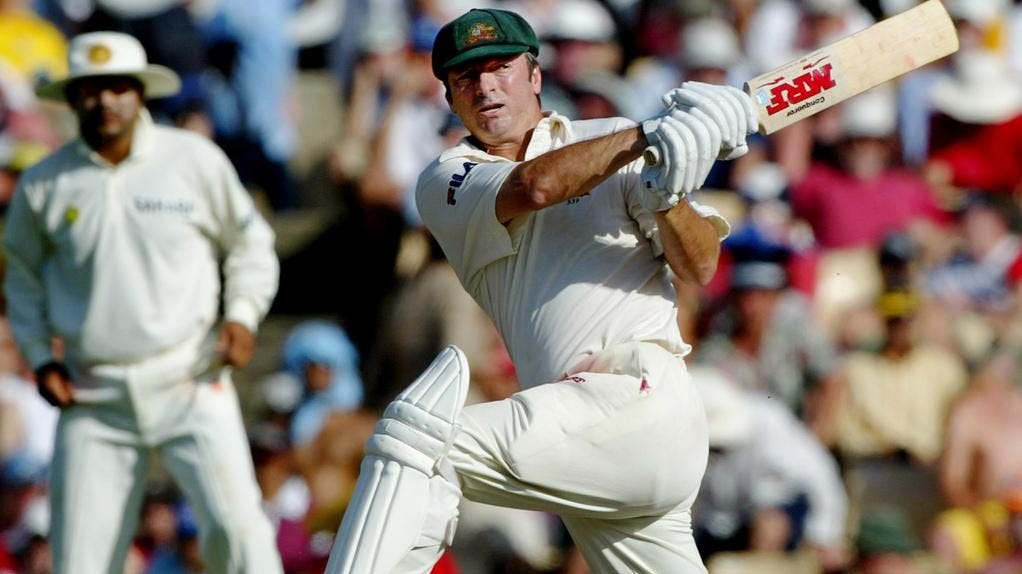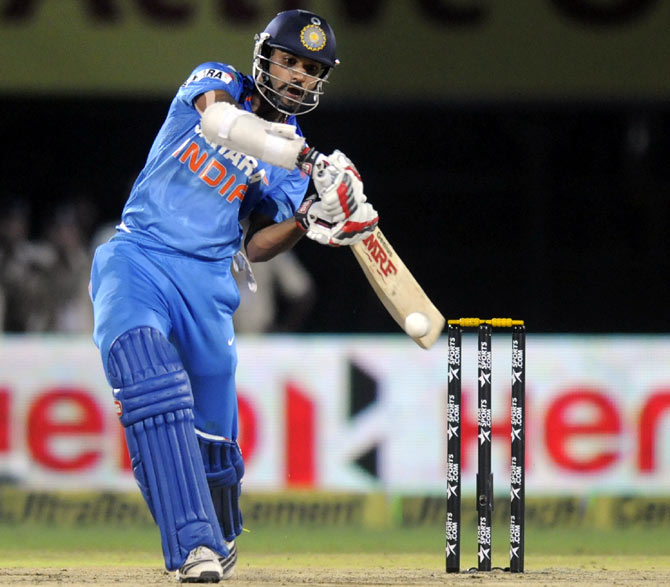Introduction
Welcome to the world of cricket, a sport that often mirrors life with its ups and downs. In the game of cricket, as in life, failure is an inevitable part of the journey. Every cricketer, whether amateur or professional, faces setbacks, disappointments, and moments of frustration. However, it’s how you deal with these failures that can truly define your cricketing career.
In this blog post, we will explore the concept of failure in cricket and provide you with valuable insights and strategies to help you cope with it effectively. From understanding the psychology behind failure to learning from the experiences of successful cricketers, we’ve got you covered. So, let’s dive in and discover how to turn setbacks into stepping stones on your cricketing path.
Understanding Failure in Cricket

Cricket, often referred to as a gentleman’s game, is a sport of immense skill, strategy, and mental fortitude. While it’s a game of glorious victories and triumphant moments, it’s equally a game of failures and setbacks. Understanding failure in cricket is crucial for players at all levels, from aspiring youngsters to seasoned professionals.
The Nature of Failure in Cricket
Failure in cricket can take various forms, such as getting out for a low score, dropping a crucial catch, or failing to bowl a tight over. It’s a game of fine margins, and even the best players face failure regularly. Here are some common instances of failure in cricket:
- Batting: Dismissal for a low score (duck), misjudging a delivery, or getting caught out.
- Bowling: Being unable to take wickets, conceding too many runs, or struggling with line and length.
- Fielding: Dropping catches, misfielding, or failing to prevent boundaries.
The Psychological Impact
Failure in cricket can have a profound psychological impact on players. It can lead to self-doubt, loss of confidence, and a fear of repeating mistakes. Understanding and managing the mental aspect of failure is as important as improving one’s skills. Some key psychological effects of failure include:
- Self-Doubt: Cricketers may question their abilities and wonder if they are cut out for the sport.
- Loss of Confidence: Continuous failures can erode a player’s self-confidence, affecting their overall performance.
- Fear of Failure: Players may become cautious and hesitant, fearing further failures, which can hinder their aggressive play.
Failure as a Learning Opportunity
While failure in cricket can be demoralizing, it is also an invaluable learning opportunity. Many successful cricketers have risen to greatness by learning from their failures. It’s essential to adopt a growth mindset and view failure as a stepping stone to success. Here are some ways to do this:
- Analysis: Review your failures and identify areas for improvement. Seek guidance from coaches and teammates.
- Mental Resilience: Train your mind to bounce back from setbacks, maintaining a positive attitude.
- Practice: Dedicate extra practice to work on weaknesses and refine your skills.
Understanding Team Dynamics
Cricket is not just an individual sport; it’s also about team dynamics. Understanding that failure can be collective rather than solely individual is crucial. A dropped catch or a miscommunication between fielders can impact the team’s performance. Building a supportive team culture helps players deal with failure constructively.
Conclusion
Failure is an integral part of cricket. Every cricketer, from novices to legends, faces it. What sets great cricketers apart is their ability to understand, cope with, and learn from failure. In the following sections, we’ll explore effective strategies to cope with failure in cricket, drawing inspiration from those who have conquered adversity on the field.
Common Reactions to Cricket Failures

Failure is an inseparable part of a cricketer’s journey, and how one reacts to it can significantly influence their future performance. Common reactions to cricket failures can vary widely, and understanding these responses is essential for personal growth and improvement in the sport.
Frustration and Disappointment
Frustration and disappointment are among the most immediate reactions to cricket failures. When a batsman gets out cheaply or a bowler concedes too many runs, frustration and disappointment can overwhelm them. These emotions often lead to negative self-talk and self-criticism, which can further hinder performance.
Blame Game
It’s not uncommon for players to engage in the blame game after a failure. They may blame teammates, the pitch conditions, or even the umpire’s decisions. This reaction can create tension within the team and disrupt the overall dynamics. It’s essential to avoid the blame game and focus on constructive solutions instead.
Losing Confidence
Continuous failures can erode a player’s confidence. They may start doubting their skills and become hesitant in their approach. A loss of confidence can have a domino effect, leading to more failures. It’s crucial for players to work on rebuilding their confidence through practice and positive reinforcement.
Overthinking and Fear
Overthinking is a common reaction to failure. Players may obsessively analyze their mistakes, leading to a cluttered mind on the field. This can affect their decision-making and performance. Additionally, the fear of repeating the same mistakes can paralyze a player, making them overly cautious.
Withdrawal
Some players respond to failure by withdrawing emotionally or mentally. They may become passive during matches, avoiding risks to prevent further failures. This withdrawal can hinder their ability to contribute to the team’s success and hinder their own development as cricketers.
Turning Failure into Motivation
While these common reactions to cricket failures are natural, the key to success lies in how a player responds and adapts. Many successful cricketers have learned to use failure as a motivational tool. They see each setback as an opportunity to improve and come back stronger. This mindset shift can make all the difference.
Learning from Mistakes
The most productive reaction to failure is to view it as a learning experience. Players can meticulously analyze their mistakes, seek guidance from coaches and senior players, and work on specific aspects of their game. Learning from mistakes is a hallmark of growth in cricket.
Conclusion
Understanding the common reactions to cricket failures is the first step in managing and overcoming them. Whether it’s frustration, blame, or loss of confidence, every player faces these challenges at some point. In the next section, we’ll delve into effective strategies to cope with and move beyond these reactions, helping you become a more resilient and successful cricketer.
Effective Strategies to Cope with Failure

Dealing with failure in cricket requires not just physical skills but also mental resilience. The ability to bounce back from setbacks is what sets exceptional cricketers apart. Here are some effective strategies to cope with failure and come back stronger:
1. Self-Reflection and Analysis
After a failure, take some time for self-reflection. Analyze your performance objectively. Identify the specific areas where you faltered, such as technical flaws or lapses in concentration. This critical assessment will provide you with a roadmap for improvement.
2. Goal Setting
Setting clear and achievable goals is essential. Establish both short-term and long-term goals for your cricketing journey. These goals will give you direction and motivation. When you encounter failure, refer back to your goals as a reminder of what you’re working toward.
3. Mental Resilience Training
Developing mental resilience is crucial in cricket. Techniques such as meditation, visualization, and positive self-talk can help you maintain composure under pressure. Mental resilience training will enable you to handle failures with a calm and focused mind.
4. Seek Guidance
Don’t hesitate to seek guidance from experienced coaches or senior players. They can provide valuable insights and advice on improving your skills and mindset. Learning from others who have faced similar challenges can be enlightening.
5. Adaptability
Cricket is a dynamic sport, and the ability to adapt is crucial. Learn from your mistakes and adapt your game accordingly. Work on your weaknesses and continuously refine your skills. Flexibility in your approach will make you a more resilient player.
6. Positive Support System
Surround yourself with a positive support system. Family, friends, teammates, and coaches who believe in your abilities can provide emotional support during tough times. They can motivate you to keep going when you’re facing adversity.
7. Stay Patient and Persistent
Patience is a virtue in cricket. Understand that setbacks are part of the process, and success often takes time. Be persistent in your efforts to improve. Don’t let failure deter you from your cricketing goals.
8. Learn from Successful Cricketers
Study the journeys of successful cricketers who have faced failure and risen to the top. Their stories can inspire you and provide valuable insights into how they coped with setbacks. Many cricketing legends have faced multiple failures before achieving greatness.
9. Maintain a Balanced Perspective
Remember that cricket is just one aspect of your life. Maintain a balanced perspective and don’t let failures define your self-worth. Keeping a healthy work-life balance can help you manage the emotional toll of cricketing setbacks.
By incorporating these effective strategies into your cricketing journey, you can learn to cope with failure more effectively. Failure can be a stepping stone to success if you approach it with the right mindset and determination. In the next section, we’ll hear from successful cricketers who have triumphed over adversity, providing you with real-life inspiration and guidance.
Testimonials from Successful Cricketers

Learning from the experiences of those who have achieved greatness in cricket can be incredibly inspiring and enlightening. Here are testimonials from some of the most successful cricketers, sharing their thoughts on dealing with failure:
| Cricketer | Testimonial |
|---|---|
| Virat Kohli | “Failure is a part of cricket, and it’s a part of life. What’s important is how you respond to it. I’ve had my fair share of failures early in my career, but they made me who I am today. It’s all about learning, adapting, and coming back stronger.” |
| Ellyse Perry | “In cricket, as in any sport, you have to embrace failure as a stepping stone to success. It’s those tough times that push you to work harder, refine your skills, and never give up. The journey is as important as the destination.” |
| Rahul Dravid | “I’ve always believed that cricket is a game of resilience. You will face failures, and you will face success, but it’s how you react to both that truly matters. The key is to keep working on your game, stay patient, and trust the process.” |
These testimonials highlight the universal truth that failure is an integral part of cricket. Even the most accomplished cricketers have faced setbacks in their careers. What sets them apart is their ability to use failure as a stepping stone to reach greater heights.
As you navigate your cricketing journey, remember the words of these cricketing legends. Use their experiences as motivation and guidance in dealing with your own failures. In the next section, we’ll address some common questions that cricketers often have about coping with failure.
FAQs
Here are some frequently asked questions about dealing with failure in cricket:
Q1: How can I overcome the fear of failure in cricket?
A: Overcoming the fear of failure in cricket requires mental resilience. Practice relaxation techniques, such as deep breathing and visualization, to stay focused and calm under pressure. Embrace failure as a part of the learning process.
Q2: What should I do immediately after a cricketing failure?
A: After a failure, take a moment to reflect on what went wrong. Identify the specific areas that need improvement and set goals for addressing them. Avoid dwelling on the failure; instead, focus on the actionable steps to bounce back.
Q3: How can I maintain self-confidence after a string of failures?
A: Self-confidence can be rebuilt through positive self-talk and setting achievable goals. Celebrate small successes, even in practice sessions. Seek feedback from coaches and teammates to reaffirm your strengths.
Q4: Is it normal to feel frustrated after a cricketing failure?
A: Yes, it’s entirely normal to feel frustrated after a cricketing failure. Acknowledge your emotions, but don’t dwell on them. Channel that frustration into motivation to improve and prove yourself in the next opportunity.
Q5: How can I help a teammate cope with failure?
A: Offer support and encouragement to your teammate. Avoid blame or criticism. Share your own experiences with failure and how you overcame them. Encourage them to seek guidance from coaches or mentors.
Q6: Can failure in cricket lead to personal growth?
A: Absolutely. Failure is a powerful teacher. It can lead to personal growth by teaching resilience, adaptability, and the importance of continuous improvement. Embrace failure as a stepping stone toward becoming a better cricketer and person.
If you have more questions or need specific advice on dealing with failure in cricket, feel free to reach out to your coaches, mentors, or fellow cricketers. Everyone faces failure at some point, and together, you can navigate these challenges and emerge stronger.
Conclusion
Dealing with failure in cricket is an essential aspect of every player’s journey. As we’ve explored throughout this blog post, failure is not a dead end but rather a stepping stone to success. It’s a part of the game that even the greatest cricketers have faced and conquered.
Understanding the nature of failure, the common reactions it can trigger, and the effective strategies to cope with it is vital for personal growth and improvement in cricket. It’s not about avoiding failure but about how you respond to it that truly matters.
Remember the words of successful cricketers who have walked the same path. They emphasize the importance of resilience, adaptability, and maintaining a positive mindset. Use their experiences as motivation and guidance in your cricketing journey.
As you face setbacks, stay patient and persistent, maintain a healthy support system, and keep your goals in sight. Failure is not the end; it’s a chance to learn, grow, and come back stronger. Embrace each challenge as an opportunity to become a better cricketer and, more importantly, a better person.
Thank you for joining us in exploring how to deal with failure in cricket. We hope the insights and strategies shared here will help you on your path to cricketing success. Keep the passion alive, keep learning, and keep playing the beautiful game of cricket.
